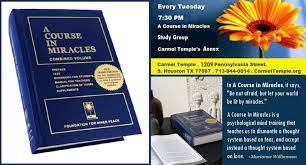Education stands as the cornerstone of societal progress, acting as the catalyst for personal growth, intellectual exploration, and global development. As we journey through the 21st century, the significance of a course in miracles has only amplified, shaping individuals into informed citizens and igniting the flames of innovation. From the hallowed halls of traditional classrooms to the virtual realms of online learning, education has transcended boundaries, making knowledge accessible to all, regardless of age, background, or geographic location.
In a world grappling with complex challenges, education serves as the beacon of enlightenment. It equips individuals with the tools to understand intricate issues, fostering critical thinking and problem-solving skills that are indispensable in navigating the intricacies of modern existence. Moreover, education nurtures empathy and cultural awareness, enabling individuals to embrace diversity and collaborate on a global scale. The power of education lies not merely in its ability to accumulate facts, but in its capacity to instill a lifelong love for learning.
As technology continues to redefine the contours of society, education too has embraced innovation. Online platforms and digital resources have revolutionized the learning landscape, democratizing education and breaking down traditional barriers. E-learning, virtual classrooms, and Massive Open Online Courses (MOOCs) have opened up new avenues for those seeking knowledge, enabling flexible learning opportunities that fit the demands of busy lives.
However, amid these advancements, the essence of traditional education remains invaluable. The classroom experience fosters personal interactions, collaboration, and character development, molding well-rounded individuals prepared to take on the challenges of an evolving world. It’s not just about textbooks and lectures; it’s about mentorship, camaraderie, and the development of essential life skills.
While education has made remarkable strides, challenges persist. Disparities in access to quality education persist across regions, perpetuating inequalities and hindering potential. It’s imperative that societies and governments worldwide prioritize equitable education, ensuring that every individual has the chance to unlock their potential.



